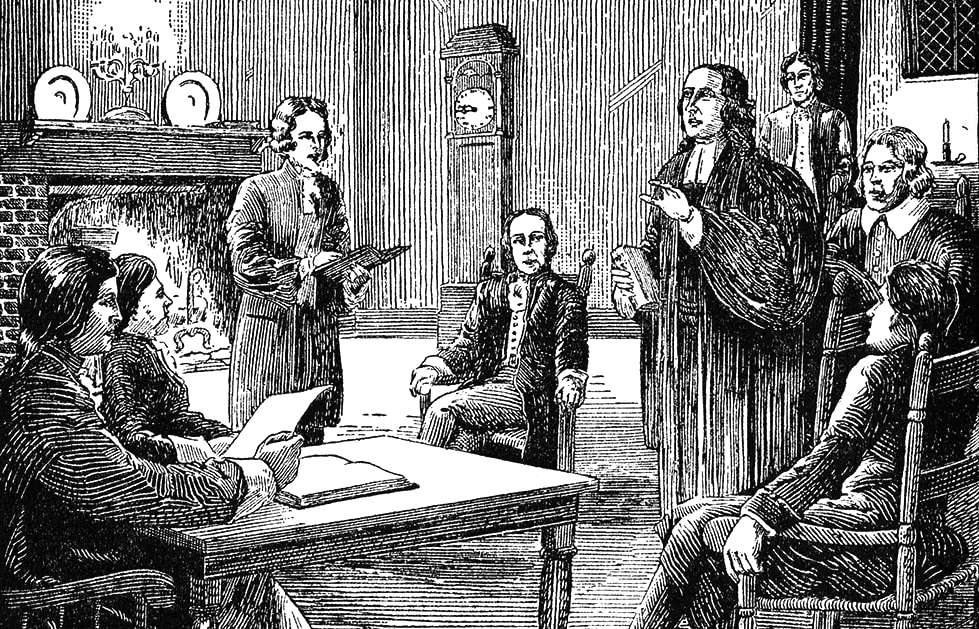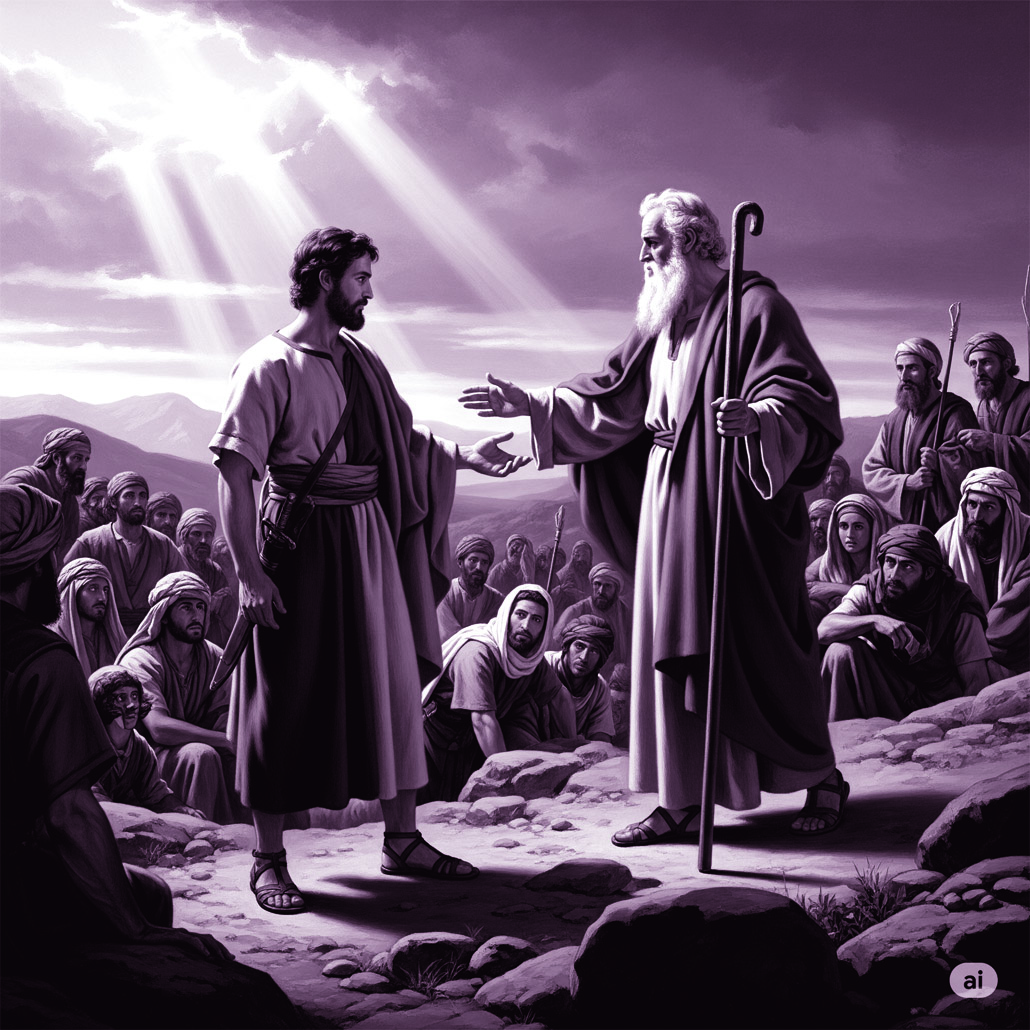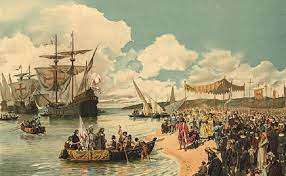

Conversions that sparked Worldwide Transformation: Martin Luther and John Wesley
Pr. Abraham Chacko
Conversion is a highly personal phenomenon––Augustine in the garden had the company of the voices of children and a profound biblical verse while Luther spent days in solitary conversation with Paul’s letter to the Romans. Yet conversion, as personal as it often is, can also ramify outward into the world with great force, galvanizing new communities, breaking old ones, and changing the world utterly. The conversions of Martin Luther and John Wesley were two cardinal events that helped change the course of Christianity to a transformative level.
What does the word conversion mean? In the biblical sense, conversion means a turning—a spiritual turning away from sin in repentance and to Christ in faith. It is a dramatic turning away from one path to pursue an entirely new one. It involves turning one’s back to the system of the world and its anti-God values. It involves a turning away from dead religion and self-righteousness. It involves a complete pivot, to enter through the narrow gate that leads to life.
Conversion also involves the idea of changing direction. A true spiritual conversion radically alters the direction of one’s life. It is not a partial change wherein one is able to straddle between two worlds. It is not a superficial turning, a mere rearranging of the outward facade of a person’s life.
This spiritual conversion is so profound that it involves many changes in a person. It involves a change of mind, which is an intellectual change, and a change of view, a new recognition of God, self, sin, and Christ. It involves a change of affections, which is an emotional change, a change of feeling, a sorrow for sin committed against a holy and just God. It involves a change of will, which is a volitional change, an intentional turning away from sin and a turning to God through Christ to seek forgiveness. The entire person—mind, affections, and will—is radically, completely, and fully changed in conversion.
The Conversion of Martin Luther
Martin Luther, a central figure in the Protestant Reformation, underwent a profound spiritual transformation that reshaped not only his personal beliefs but also the course of Christianity. Luther's conversion, marked by a deep sense of spiritual crisis and subsequent theological insights, laid the groundwork for the significant changes that would unfold within the Church and beyond.
To understand Luther, we must understand that his conversion was not an isolated event in his life. We can trace Luther’s development in grace from his childhood. Luther was born in Eisleben, Germany, in AD 1483. Luther came from a peasant family; his mother was a pious Catholic. She instilled the fear of God into her strong-willed son. Martin entered the University of Erfurt when just 17 years old. After his studies, Luther was transferred from Erfurt to a monastery in Wittenberg.
Martin Luther's journey towards conversion can be traced to a moment of intense spiritual crisis. As a young Augustinian monk, Luther struggled with a profound sense of guilt and unworthiness before a holy God. The prevailing theology of the time, centered around the Catholic Church's teachings on indulgences and salvation through works, exacerbated Luther's internal turmoil. The pursuit of righteousness through religious rituals and sacraments left him spiritually unfulfilled and haunted by the fear of divine judgment.
To find solace and answers to his spiritual struggles, Luther embarked on a pilgrimage to Rome in AD 1510. However, his experiences in the holy city deepened his disillusionment rather than providing the comfort he sought. Witnessing corruption, decadence, and a lax attitude toward spirituality within the Church hierarchy left Luther questioning the authenticity of the religious practices he had previously held in high regard.
The Turning Point for Martin Luther: Study of Romans
Luther's pivotal moment of conversion occurred as he engaged in a close study of the Scriptures. Romans 1:17 – "For in it the righteousness of God is revealed from faith for faith, as it is written, 'The righteous shall live by faith,'" became a catalyst for a profound paradigm shift in his understanding of salvation.
The breakthrough came as Luther grasped the concept of justification by faith alone (sola fide) – the idea that salvation is a gift from God received through faith, not earned through human works. This revelation, coupled with a renewed understanding of God's grace, brought Luther the assurance and peace he had desperately sought. In Luther’s own words, “I had indeed been captivated with an extraordinary ardor for understanding Paul in the Epistle to the Romans. But a single word in Chapter 1, “In it the righteousness of God is revealed” that had stood in my way. I felt that I was a sinner before God with an extremely disturbed conscience. I could not believe that he was placated by my satisfaction. I began to understand that the righteousness of God is that by which the righteous lives by a gift of God, namely by faith.”
Motivated by his newfound convictions, Luther boldly challenged the Church's practices, particularly the sale of indulgences, by posting his 95 Theses on the door of the Castle Church in Wittenberg in AD 1517. This act of defiance, intended to spark academic debate, instead ignited a broader movement that would become known as the Protestant Reformation.
Martin Luther’s Legacy and Impact:
Martin Luther's conversion was not merely a personal transformation; it became a catalyst for widespread change within Christianity. The doctrines he espoused, emphasizing justification by faith and the authority of Scripture, laid the foundation for the Protestant movement, leading to the establishment of various Protestant denominations. Even while in hiding at the castle of Wartburg, he worked furiously, writing volumes, and even finding time to translate the New Testament into German. This translation enabled the common man to read the Bible, a very important impetus for the Reformation.
Beyond theology, Luther's ideas on individual conscience, priesthood of all believers, and the importance of direct engagement with the Bible left an enduring mark on Western culture. The ripple effects of his conversion extended to realms of education, governance, and the shaping of modern democratic principles.
The Conversion of John Wesley
John Wesley, an influential 18th-century Anglican cleric, theologian, and the founder of Methodism, underwent a profound and transformative spiritual experience that would become the cornerstone of his life and ministry. His conversion, marked by a deep sense of spiritual unrest and a subsequent encounter with divine grace, laid the groundwork for the development of Methodism and left an enduring impact on Christian history.
John Wesley's early years were marked by academic excellence. He attended Christ Church, Oxford, and later became a fellow at Lincoln College. Along with his brother Charles and other like-minded individuals, he formed the Holy Club, a group dedicated to rigorous religious discipline and charitable works. Despite his earnest pursuit of a godly life, Wesley felt a void within himself, a sense of spiritual dissatisfaction that he could not reconcile.
The Turning Point for John Wesley: Aldershot Experience
The turning point in John Wesley's spiritual journey occurred on an evening in AD 1738, at a meeting on Alders gate Street in London. While listening to the reading of Martin Luther's preface to the Epistle to the Romans, Wesley experienced a profound spiritual awakening. He later recounted this experience in his journal, stating that his heart was "strangely warmed" as he felt a transformative assurance of God's grace and forgiveness through faith in Christ.
Wesley's encounter with divine grace at Alders gate marked a shift in his understanding of salvation. He moved from a legalistic view of righteousness through works to a realization that justification comes by faith alone. This realization not only brought Wesley personal peace but also became the driving force behind his future ministry and the Methodism movement.
Empowered by his newfound understanding of grace, Wesley embarked on a mission to share the message of salvation with others. Along with his brother Charles and other associates, Wesley engaged in itinerant preaching, emphasizing the importance of a personal relationship with Christ and the transformative power of God's grace. The Methodist movement, characterized by small group meetings, accountability structures, and an emphasis on practical piety, grew rapidly, spreading across England and eventually reaching other parts of the world.
John Wesley’s Legacy and Impact:
The conversion of John Wesley not only transformed his own life but also left an indelible mark on the landscape of Christianity. Methodism became a significant force in the evangelical revival of the 18th century, contributing to a renewed emphasis on personal holiness, social justice, and an experiential relationship with God.
Wesley's theological contributions, often summarized in the Wesleyan Quadrilateral – Scripture, tradition, reason, and experience – continue to shape Methodism and influence broader Christian thought. The Methodist movement also played a role in the formation of other Christian denominations, fostering a renewed interest in personal piety and social reform.
Until his conversion, Wesley preached, taught, wrote, composed hymns, and even gave himself to missionary work—all to no avail. After the conversion experience, Wesley took to the fields, preaching to coal miners and commoners. Despite recurring opposition, his itinerant evangelism soon expanded throughout England and beyond. It is estimated that he rode over 250,000 miles on horseback and preached over 40,000 sermons. He also published selections of his sermons and wrote voluminously. His use of lay preachers and small “societies” spread the movement to some 120,000 followers by the time of his death.
Yet the conversion and subsequent ministries of John Wesley were not isolated events whose impact ended with the passing of the 18th century. His life continues to greatly influence the church. Many Methodist denominations today still embrace those notable elements of the Wesley ministry: an emphasis upon preaching; the organization of small groups for prayer and Bible study; the importance of book and tract distribution; and a concern for the poor, oppressed, and disenfranchised, which to John Wesley and his followers was the natural expression of the religious life.
The theology of John Wesley also has an ongoing influence outside of strictly Methodist denominations. Wesley’s emphasis upon the role of the Holy Spirit in the life of the believer and the church has fired up the Holiness movement, the Pentecostal movement, and even the Charismatic movement.
Conclusion:
The conversions of Martin Luther and John Wesley stand as a pivotal moment in the history of Christianity. Luther’s conversion marked the beginning of a transformative era in Christendom from the 16th century. John Wesley’s conversion marked the birth of the Methodist movement and contributed to the broader evangelical revival of the 18th century. From a tormented monk wrestling with his own inadequacies, Luther emerged as a bold reformer, challenging centuries-old traditions and reshaping the theological landscape. His conversion not only shaped the trajectory of Christianity but also left an indelible imprint on the broader development of Western thought and culture. Wesley's personal experience of grace, coupled with his commitment to spreading the message of salvation, left an enduring legacy that continues to influence Christian theology, practice, and mission.



